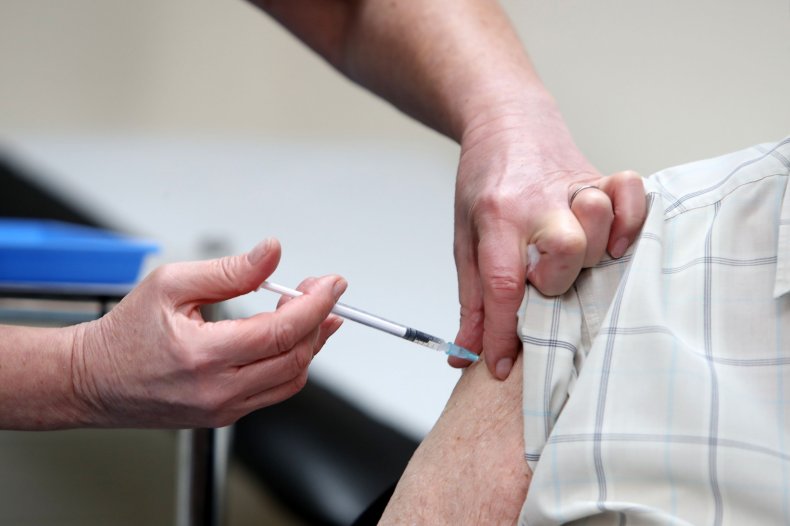A top vaccine researcher has stated it is still uncertain whether existing vaccines will work versus a brand-new version of the unique coronavirus that was first spotted in South Africa.
John Bell, a professor who led the development of the AstraZeneca-University of Oxford COVID-19 vaccine, told Times Radio that the South African version– dubbed501 V2– anxious him more than another strain recently identified in the UK “by some margin.”
Like the U.K. variation, the South African strain also seems more transmissible than the initial. Found in December, it has now been identified in a handful of other nations around the world, including France and Japan.
Both of the new variations, which share some resemblances, have several hereditary anomalies, however the South African one includes substantial changes to the important “spike” protein that enables the SARS-CoV-2 infection to infect human cells.
These modifications could possibly make vaccines less efficient versus this variation, according to Bell, although more research study requires to be carried out in order to effectively comprehend this concern.
” The anomalies connected with the South African form are really quite substantial modifications in the structure of the protein. The protein has a domain, which binds to the human cells– it’s called the receptor binding domain, and it’s where the virus attaches itself,” Bell informed Times Radio on Sunday.
” If you get an immune reaction that secures you, one of the methods it safeguards you is it obstructs of that binding event. You rely on antibodies to bind to that domain to stop the infection from binding onto yourself. That’s basically the entire basis for vaccines. If you get an infection, you make antibodies to that domain that prevent you getting reinfected. So, if you mess around with that, you remain in trouble.”
Bell said that scientists were now looking at the “crucial question” of whether or not vaccines will work against the new versions identified in the U.K. and South Africa– neither of which appear to trigger more serious illness.
” I can’t provide you an insight now,” Bell said. “My suspicion is that I think the vaccine will be still effective versus the [U.K.] stress. And I do not know about the South African pressure. I believe that’s a there’s a big enigma about that.”
Bell said there is still some headroom with the vaccines that are currently available, since they work “much better” than anybody would have anticipated formerly.
” We do have some room to manoeuvre if they worked 20 percent less well because of mutation. We ‘d still have great vaccines in my view. I believe it’s not likely that these mutations will shut off the result of vaccines completely, I believe you’ll still have a recurring impact,” Bell stated.
If needed, Bell said that it was “perfectly possible” to fine-tune existing vaccines so that they work against the brand-new strain which this would not take a whole year.
” It may take a month or 6 weeks to get a new vaccine. So everybody needs to stay calm, it’s going to be great. We’re now in a game of feline and mouse, because these are not the only 2 variants we’re going to see. We’re going to see lots of versions.”
Simon Clarke, an associate teacher in cellular microbiology at the University of Reading, in the U.K., said in a statement that the South African variation has more extensive alteration to the spike protein than the U.K. variant.
He said this might “make the virus less vulnerable to the immune action triggered by the vaccines.”
But Francois Balloux, a teacher of computational systems biology at University College London, was more mindful about this possibility.
” It is not anticipated that this anomaly suffices for the ‘South African’ variant to bypass the protection provided by existing vaccines,” he stated in a statement. “It’s possible that new versions will impact the efficacy of the COVID vaccines, but we should not make that assumption yet about the South African one.”

GEOFF CADDICK/AFP via Getty Images
No comments:
Post a Comment